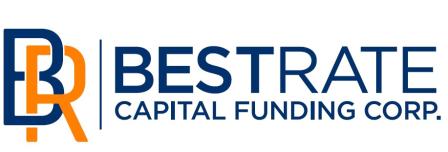

As you get into the mortgage application process, you may hear your lender use the term “cash to close.” What’s the difference between this phrase and closing costs?
What does “Cash to Close” mean?
Also called “funds to close,” cash to close denotes the total amount of money you will be required to pay on your mortgage closing day.
The Difference Between Cash to Close and Closing Costs
While they are connected, these terms refer to different things. Closing costs are all the fees related to creating the mortgage and finalizing the sale that you as the buyer pay. These include things like appraisal, attorney, origination fees and more.
Your cash to close amount includes your total closing costs minus any fees that are financed (or rolled) into your loan amount. Cash to close also includes your down payment minus the earnest money deposit you may have made when your offer was accepted. Cash to close can also include seller credits, refunds for overpayments, and other credits.
In a nutshell, closing costs are the fees you pay to your lender to close on your loan. While on the other hand, cash to close is the total amount you need to bring to the closing table so you can complete the real estate transaction.
What is Included in “Cash to Close” Payments?
Here's a quick list of the most common items that are included in your cash to close:
- Down Payment
- Total Closing Costs
- Mortgage Prepaid items
- Credits
How Do I Know How Much Cash I’ll Need to Close?
Your lender will give you a loan estimate at the outset of the mortgage process. This will lay out a ballpark of expected closing costs and down payment charges. The lender is also required to send you a Closing Disclosure document at least three business days before the closing date that provides you an itemized list of closing costs. It’s a good idea to compare these two documents to see if there were any major changes in fees. If there are, be sure to understand the differences. In the end, you will need enough money to cover all the closing costs plus your down payment.
Do I Need Actual Cash to Close?
No, you do not need to have all that money in paper bills. In some cases, you may not even be allowed to pay with cash depending on your mortgage lender and title company. The following are the most common methods of payment today:
- Cashier’s Check – This is a check certified by your bank. It uses the bank’s money to pay for the charge when the mortgage lender cashes the check, and then the bank withdraws the money from your account. Cashier’s checks have many security features that make them preferred with lenders.
- Wire Transfer – A wire transfer is an electronic transfer of your money straight from your bank account to the lender. It is a very convenient method as it does not require a trip to your bank. Just double and triple check you have the correct address of where to send the funds to avoid scams. Wire transfers cannot be undone.
- Certified Check – While less preferable than cashier’s checks, certified checks are usually an option. This is a check from your personal account but certified by the bank that you have the required money currently in your account. The bank locks that amount in your account until the check is cashed.
Give us a call today if you have any questions. We are here to help your home purchase or refinance as smooth as possible.

